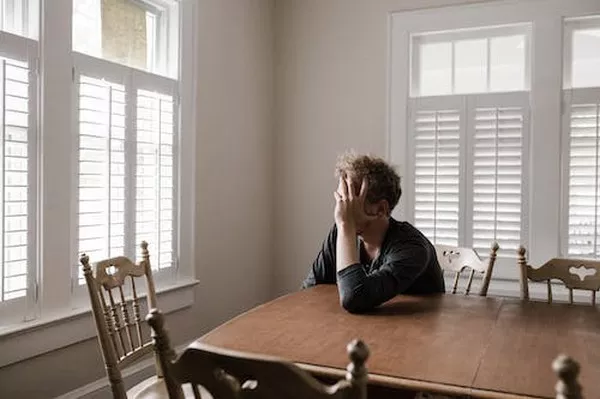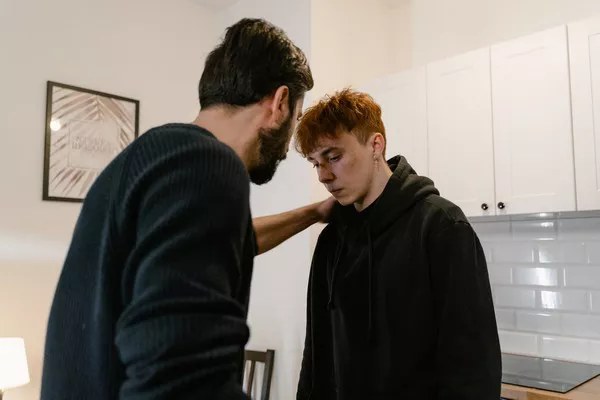In Washington, D.C.’s Wards 7 and 8—areas marked by significant health disparities—a local psychopharmacologist is spearheading a new initiative aimed at addressing the mental health needs of Black and brown communities. The initiative, “Your Mind Our Business,” is a virtual coaching platform designed to provide accessible mental health support to individuals who may otherwise face barriers to care.
The name of the platform flips the familiar expression “mind your business” on its head, reframing it as a call to action: “Your mind is my business.” Dr. Bryan Sackey, the founder and CEO of the platform, explained that the phrase encourages a shift in how mental health is viewed within marginalized communities.
“When we ask someone ‘How are you?’ they often respond with a dismissive ‘Mind your business.’ This platform turns that around, saying, ‘Your mind is all of our business,’” Sackey said. His goal is to break the stigma surrounding mental health and foster a more open dialogue about the importance of mental well-being in communities that have long been underserved.
Sackey, who trained at Howard University and recently returned to D.C. after years of practice in Houston, emphasized that mental health is often neglected because individuals may not recognize the need for help. He points out that unlike physical ailments, such as a broken bone, mental health struggles are often invisible and harder to identify.
“We don’t always know when we’re dealing with something. Mental health isn’t something you can just see like a broken leg and immediately know you need help,” Sackey explained. “For many, the challenge is even knowing that help is needed.”
The virtual nature of the service offers a convenient and private way for individuals, particularly those in low-income areas, to seek assistance from the comfort of their own homes. This accessibility is critical in D.C., where approximately half of Black residents report lacking access to adequate healthcare, according to The Washington Post. Sackey believes his platform can help close this gap by offering culturally competent care provided by professionals who share similar backgrounds to those they serve.
“We’re not saying you must only see a Black provider if you’re Black. But having someone who understands your lived experiences can help you feel more comfortable and open up about what you’re going through,” Sackey explained.
In addition to addressing cultural competence, Sackey is committed to using his platform to tackle the broader issues of access to healthcare in the District. He also aims to partner with local organizations and secure grants to create systemic change, particularly for the communities hardest hit by gentrification. A 2019 study by the National Community Reinvestment Coalition highlighted how gentrification has displaced many Black and brown residents in D.C., limiting their access to essential services, including mental health support.
Sackey expressed his deep commitment to the city, stating that he wants to see positive changes that benefit long-time residents, especially those in historically Black neighborhoods. D.C. was once known as “Chocolate City” due to its large Black population, but Sackey believes the core community is at risk of being overlooked amid the rapid changes brought on by gentrification.
“I want to help bring resources back to the people of D.C. who have been here for generations,” he said. “We’ve been through so much, and the community that helped shape this city can’t be forgotten.”
In his work, Sackey places great emphasis on authenticity. He strives to present himself in a way that makes clients feel seen and understood. Known for his casual approach, Sackey often wears a doctor’s white coat over more relaxed attire—graphic t-shirts, sweatpants, and colorful sneakers. This choice in wardrobe reflects his belief in breaking down barriers and making the coaching process feel more relatable.
“I’m a Black man in America, trying to navigate the same world as my clients,” he said. “I want them to know that I’m not putting myself on a pedestal. I’m just here to help.”
Sackey’s approach to coaching is deeply personal. He openly shares his own struggles with mental health, including experiences with anxiety and depression. He believes that this vulnerability helps build trust with clients, who may be hesitant to seek help due to fear of judgment or a lack of understanding from others.
“My life has been shaped by mental health challenges,” he said. “From my family to my community, I’ve seen the effects of mental health firsthand—people close to me have died by suicide. It became clear to me that this is my mission, to use my experiences to help others.”
One of his clients, Ashley Dixon, a registered nurse, described how Sackey’s guidance helped her through one of the lowest points in her life. “He helped me love myself and accept the parts of my life that felt broken,” Dixon shared. “He literally saved my life, and I can’t imagine where I would be without him.”
Sackey’s initiative comes at a time when the World Health Organization has highlighted the importance of peer support and people with lived experience in providing effective mental health care. According to the WHO’s 2022 World Mental Health Report, individuals with personal experience of mental health challenges can be powerful advocates and agents of change within their communities.
As he continues to expand his platform, Sackey remains focused on his mission to make mental health care more accessible, equitable, and culturally relevant for all. Through virtual coaching, community engagement, and a commitment to breaking down barriers, “Your Mind Our Business” aims to provide support where it is most needed—ensuring that mental health becomes a shared responsibility and a priority for all.
Related topics:




























